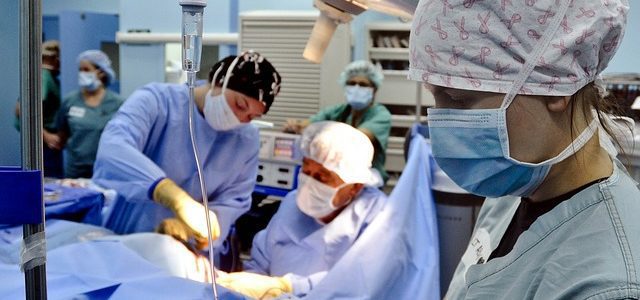By Ken Alltucker and Jayne O’Donnell, USA Today, Oct.22, 2019.
More than 1 in 3 outpatient surgery centers employ doctors who are not board-certified in their respective medical specialty, according to a survey by the Leapfrog Group.
Leapfrog, a nonprofit that rates hospitals also reported nearly 30% of providers who provide anesthesia at doctor-owned centers are not board certified.
The nonprofit polled more than 1,400 hospital- and ambulatory surgery centers to give the public information on the facilities that now perform the majority of U.S. surgical procedures. Patients who undergo operations and other procedures at the centers are released the same day.
Unlike hospitals that keep patients overnight and must report quality measures, comparatively little information is available to the public when evaluating same-day-surgery centers.
“Virtually nothing is known in a systematic way about the safety of these centers,” says Leah Binder, CEO of Leapfrog Group. “When you go under the knife, you want the reassurance of an independent report on their safety. That’s why we did it.”
Why it matters:
Leapfrog published figures based on surveys of 321 ambulatory surgery centers and 1,141 hospital outpatient surgery departments. The inaugural report did not include infection rates or other measures of how a patient fared after getting treatment at these centers, nor did it include statistics on individual centers.
Unlike its hospital reports that provide data on individual hospitals, the surgery center report only included national-level data. Leapfrog plans to publish data on individual centers beginning next year.
The centers handle more than 60% of all surgeries and procedures as doctors and specialists shift away from hospital operations, particularly for healthier individuals who don’t require the level of monitoring a hospital provides. The centers typically must be accredited by a third party and must undergo inspections from state health departments.
Leapfrog reported data based on two broad categories of surgery centers – the outpatient centers owned by hospitals and ambulatory centers that are often, but not always, owned by physicians.
The survey responses signal to patients the types of questions they should ask when considering a surgery center, said Dr. Lee Fleisher, a University of Pennsylvania Perelman School of Medicine professor and chair of the Leapfrog Group’s expert panel on surgery centers.
For example, at physician-owned centers, more than 11% of clinicians were not certified in pediatric advanced life support. That could be a critical shortcoming if a pediatric patient develops a life-threatening complication while recovering from surgery.
“Is the center and are the people in the center appropriate?” asked Fleisher. “Are all safeguards in place? If a problem develops, what are the safeguards of the place where you are going?”
The limited number of board-certified anesthesiologists likely contributes to the poorer showing among surgery centers, said Bill Prentice, CEO of the Ambulatory Surgery Center Association. But it could also because of Leapfrog’s small sample size, he said.
“This is the first year of this research,” said Prentice, noting a very small percentage of centers not connected to hospitals participated. People should “take all the data with a grain of salt.”
The report found some centers fell short on standards such as hand hygiene and programs that encourage responsible use of antibiotics. Less than 1 in 5 physician-owned centers participating in the survey adopted antimicrobial stewardship programs, which promote the appropriate use of antimicrobials and antibiotics.
Such policies can improve patient outcomes, reduce microbial resistance, and ultimately decrease the spread of infections, Leapfrog’s report said.
Prentice said the electronic hand-hygiene systems are very expensive, which is why few surgery centers or hospitals use them. Regardless, “ASCs have very strong hand hygiene programs and they are working,” he added.
An investigation by Kaiser Health News and the USA TODAY Network last year found since 2013 more than 260 patients died after in-and-out procedures at surgery centers across the country. Dozens – some as young as 2-year-old Abbygail Chance – died after routine operations, such as colonoscopies and tonsillectomies.
Compared to the 14 safety measures hospitals must report to the Centers for Medicare and Medicaid Services, surgery centers only have to report four, Binder said.
“We know almost nothing about their safety or quality,” said Binder. “We are concerned that same-day surgery providers are not following basic safety steps. We are trying to figure out what’s going on in the Wild West.”

